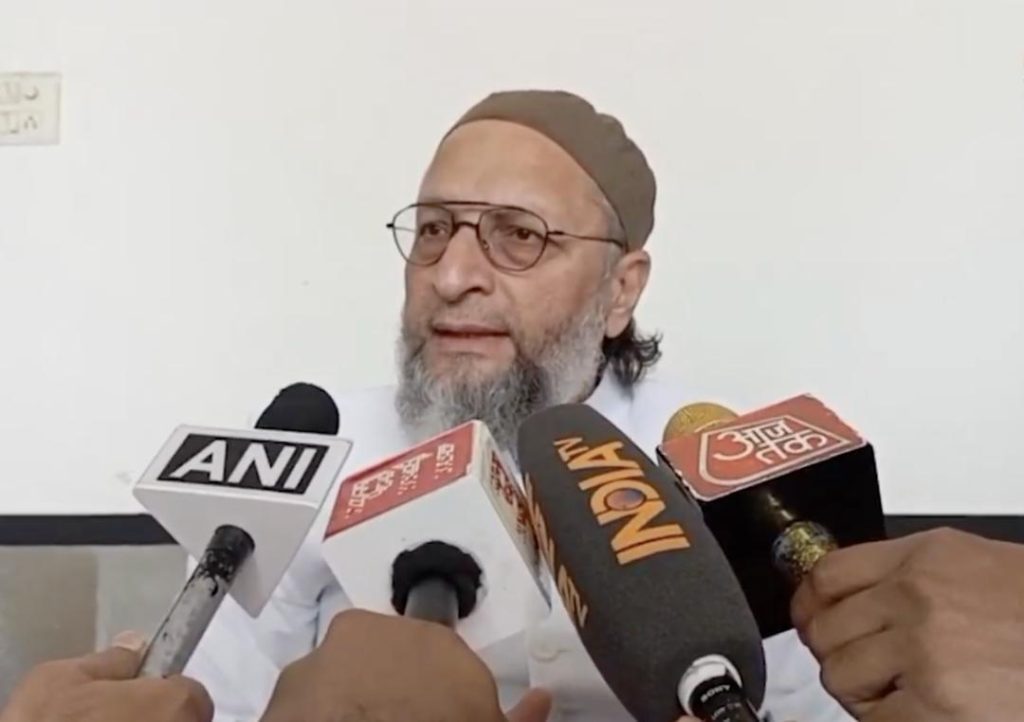
Arrest 4-5 ministers & govt is gone: Owaisi on PM-CM removal Bills
In a dramatic claim, All India Majlis-e-Ittehadul Muslimeen (AIMIM) chief Asaduddin Owaisi has stated that if four to five ministers are arrested, the government would collapse. He made these remarks while commenting on the Constitution (130th) Amendment Bill, which aims to provide for the removal of Prime Ministers, Chief Ministers, and ministers arrested for at least 30 days.
Owaisi’s statement has raised eyebrows, as it highlights the potential impact of the bill on the country’s political landscape. Speaking on the proposed legislation, Owaisi questioned its validity, stating, “Just arrest four-five ministers, and government is gone.” His assertion implies that the removal of key cabinet members could lead to a collapse of the government, leaving the country in a state of flux.
The AIMIM chief further criticized the bill, saying, “This proposed bill is saying that the President can remove the Prime Minister. What is this?” His concerns echo the sentiments of many who believe that the bill undermines the constitutional framework and threatens the stability of the government.
The Constitution (130th) Amendment Bill, which is currently being debated in the Rajya Sabha, proposes to amend Article 311 of the Constitution to provide for the removal of Prime Ministers, Chief Ministers, and ministers arrested for at least 30 days. The bill aims to prevent abuse of power by government officials and ensure accountability.
However, Owaisi’s statement suggests that the bill could have unintended consequences, potentially destabilizing the government and creating a power vacuum. His comments have sparked a heated debate on social media, with many questioning the implications of the bill and its potential impact on the country’s political landscape.
The AIMIM chief’s assertion has also drawn attention to the potential risks of removing key government officials. While the bill aims to promote accountability, it may also create a sense of uncertainty and unpredictability in the political landscape.
In addition to Owaisi’s concerns, other critics of the bill have expressed similar fears. They argue that the bill could be misused by the government to target political opponents or silence dissenting voices. The bill’s proponents, however, argue that it is necessary to ensure accountability and prevent abuse of power.
As the debate surrounding the bill continues, Owaisi’s statement serves as a reminder of the potential consequences of the proposed legislation. His assertion that the arrest of four to five ministers could lead to the collapse of the government highlights the importance of careful consideration and thoughtful debate on the bill.
In conclusion, Owaisi’s statement has sparked a heated debate on the Constitution (130th) Amendment Bill, which proposes to provide for the removal of Prime Ministers, Chief Ministers, and ministers arrested for at least 30 days. While the bill aims to promote accountability and prevent abuse of power, Owaisi’s assertion that the arrest of four to five ministers could lead to the collapse of the government raises important questions about the potential consequences of the proposed legislation.
As the debate continues, it is essential to consider the potential risks and implications of the bill. The government must carefully weigh the benefits of the bill against its potential consequences and ensure that it is used responsibly.
Source:






